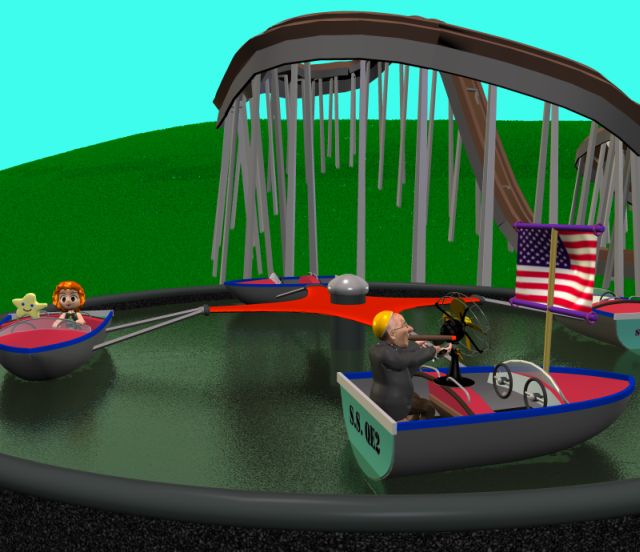Thursday, October 24, 2013
Perpetual economics
In econblog circles there's a productive dialog on the basic question: Is economics a science? Krugman has a surprisingly sensible answer. He says econ is a science, but many economists are priests, not scientists.
Mote and beam, of course. Krugman himself is The High Priest of Infinite Stimulus. More more more more more more more more more more spending is The Holy Answer To All Questions. (I suspect he knows this about himself at some level; he has more insight than most Experts.)
I've hit this question many times, with a solidly negative answer. Let's look at it again from the Grand Blueprint perspective, from the distinction between living purpose and non-living predictability.
Economics is an attempt to measure and describe a uniquely live activity: Creating value.
Non-living things move back and forth and exchange places under the influence of wind and gravity. That's not economic activity.
All living things know what value is. Bacteria move toward good 'smells' and away from bad 'smells'. They place high value on edible material and low value on inedible material. I'd call that a prerequisite for economic activity.
Real economic activity begins with bugs and birds selecting pretty or tasty objects as courtship tokens. That's the first instance of exchanging things based on value, with a living purpose or goal in mind.
Humans take this to the next level in trading and barter. A trader selects and presents things to maximize their attractiveness, in order to exchange them for things that he considers superior. In selecting and presenting, he is increasing extrinsic (perceived) value but not intrinsic value.
Real intrinsic value gets created when the farmer applies labor and care to seeds and soil and eggs. Living purpose takes care of the rest, giving us edible fruits and leaves and meat.
Finally, the most advanced form of human purpose starts with raw stuff and carves it or bakes it or melts it or ties it together to make new intrinsic value, objects that didn't exist in Nature and weren't created by natural growth.
Value can be recalibrated via feedback loops, increasing and decreasing with perceived supply
and perceived demand; but value can only be created by selection, natural growth, or manufacture.
Up to here we're looking at concrete and observable processes. Living purpose is not part of most scientific discussions because most "scientists" don't know what life is. Still, it's perfectly observable. An economist who stayed within these bounds could be doing something like science. Problem is, modern economists don't stop there.
Modern economists talk about Efficient Markets and recommend things like stimulus and options and derivatives and QE. Those activities do not belong to the realm of concrete and observable processes. They are pure numerical manipulation.
QE doesn't add value through any of those stages of human or animal purpose. It just moves numbers around in order to STOP normal economic activity that would be expressed in varying interest rates. It breaks the loop. It's not only fake, it PREVENTS the creation and exchange of real value.
Quite simply, QE is perpetual motion. Real science showed long ago that perpetual motion is just a waste of time and activity.
 Economists can't see this, which means they are quacks.
Economists can't see this, which means they are quacks.
 Economists can't see this, which means they are quacks.
Economists can't see this, which means they are quacks.
Labels: Blinded by Stats, Grand Blueprint, Natural law = Sharia law
